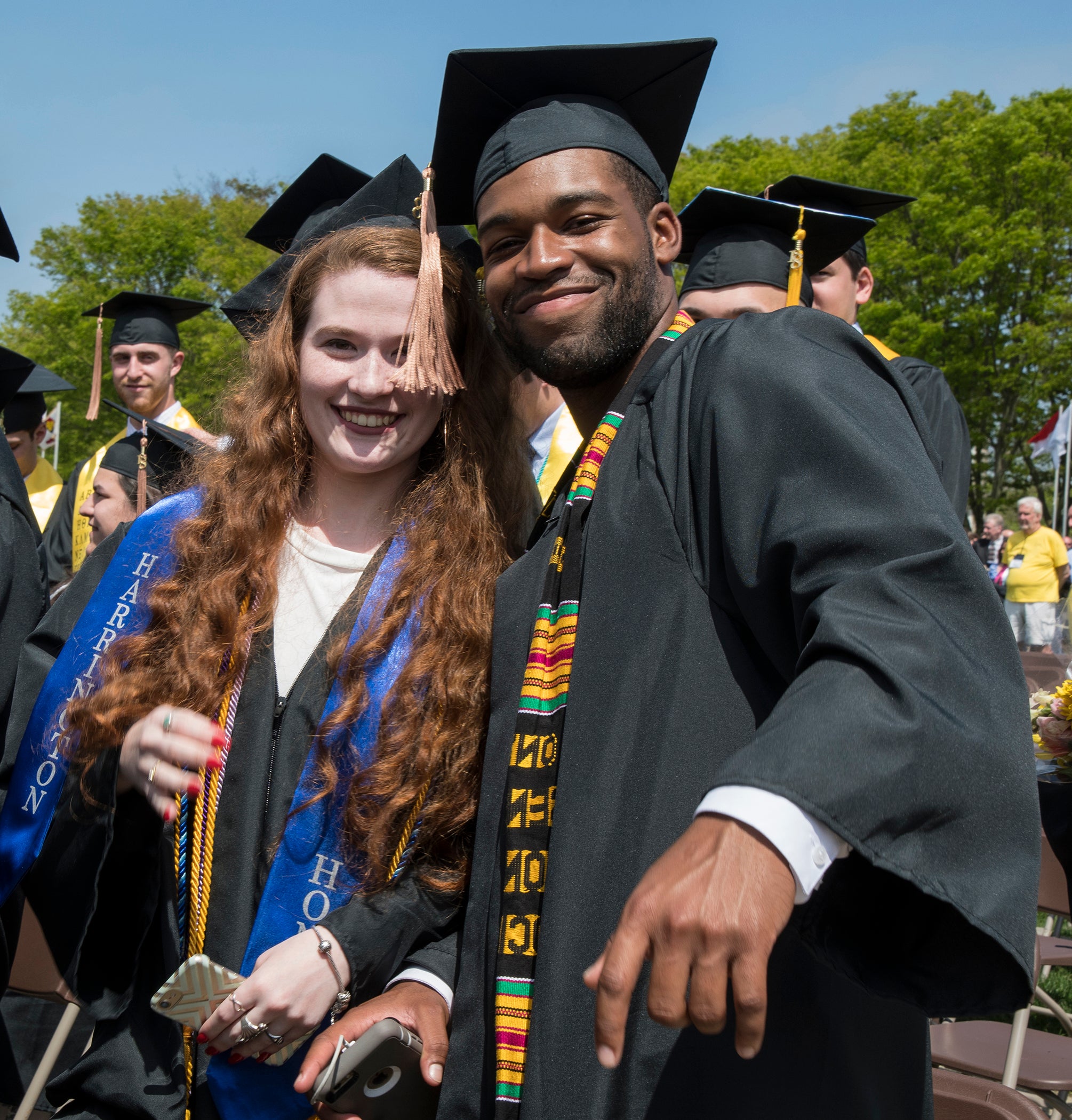KINGSTON, R.I., Oct. 15, 2018 – As part of its ongoing efforts to increase degree completion, the Association of Public and Land-grant Universities (APLU) this week named the University of Rhode Island (URI) as one of five finalists for its 2018 Degree Completion Award. The annual award works to identify, recognize and reward institutions that employ innovative approaches to improve degree completion while ensuring educational quality.
“URI implemented a multifaceted approach that produced significant gains in student success and degree completion,” said URI Provost and Vice President for Academic Affairs Donald H. DeHayes. Degrees awarded each year increased from 2,968 in 2008 to 4,220 in 2017, a 42 percent increase.
“Our strategies focused on a new financial aid model, new curriculum pathway maps, careful monitoring of semester credit completion rates, investing in new professional academic advisors and establishing an early-alert system to help identify students who were struggling,” added DeHayes.
The annual Degree Completion Award is open to all APLU members, 237 public research universities, land-grant institutions, state university systems and affiliated organizations. APLU is a research, policy and advocacy organization dedicated to strengthening and advancing the work of public universities in the U.S., Canada and Mexico.
A panel of eight reviewers examined the applications to determine the finalists. In addition to URI, the finalists are Wayne State University, Arizona State University, the University of Memphis and the University of Nevada, Reno. The winner will be named, and all finalists will be recognized, at the APLU Annual Meeting, Nov.11-13, in New Orleans.
Terrel Rhodes, vice president of the Association of American Colleges and University’s Office of Quality, Curriculum and Assessment, praised URI’s approach. “They’re doing it well and not dictating it” to faculty members, he said. The university stands out, Rhodes said, for how it incorporated practical skills — such as understanding data and various categories of critical thinking — in a systematic way into its learning outcomes and gen-ed courses. “If you do this well, you’re going to have students staying longer and graduating,” he said. Asked how common this approach is among research universities, Rhodes said, “I wish I could say it was rampant, but it isn’t.”
During the last decade, first-year student retention at URI increased by 8 percent and the four-year graduation rate increased by 14 percent. The University also increased the number of students receiving financial aid to 92 percent of those demonstrating need, up from 77 percent in 2010.
Over just an eight-year period, overall four- and six-year graduation rates grew by 14 and 7 percentage points, gains of 36 percent and 11 percent, respectively. The six-year graduation rate for student’s receiving federal Pell grants rose from 46.7 percent to 60.1 percent, reducing the achievement gap between Pell grant recipients and non-recipients from 15 percent to 7 percent over four years. Similarly, the six-year graduation rate for the expanding cohort of historically underrepresented students increased from 46.6 percent to 58.8 percent over the past four years.
“It’s not enough to just help more students access college. We have to help more students graduate,” said APLU President Peter McPherson. “That’s why we’re spotlighting five innovative public universities that have made exemplary strides in the number and share of their students completing degrees. In recent years, public universities have united behind a degree completion-driven agenda. Our Degree Completion Award finalists are showing how public universities can continue to make student success progress in years to come.”

